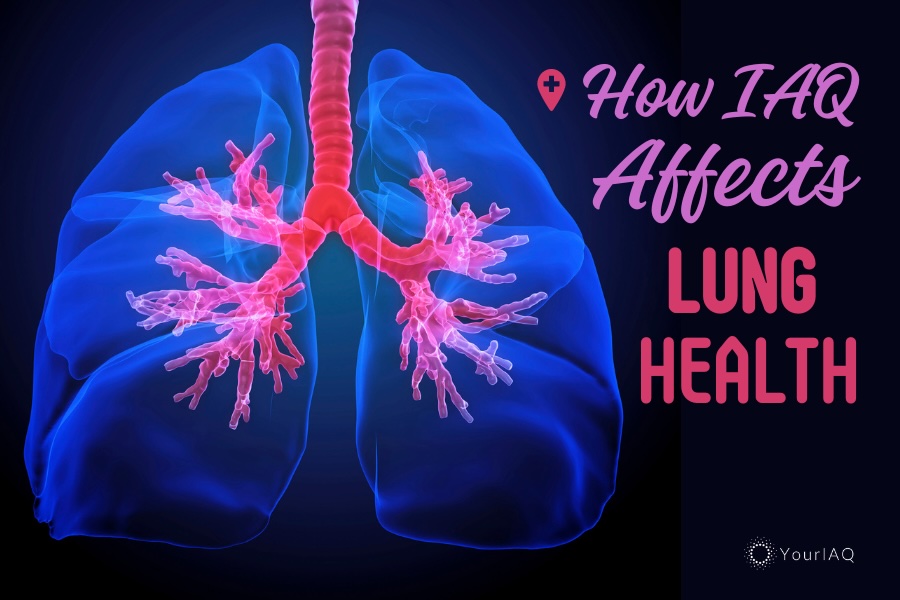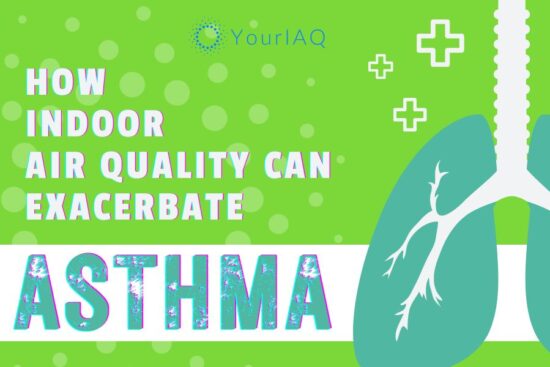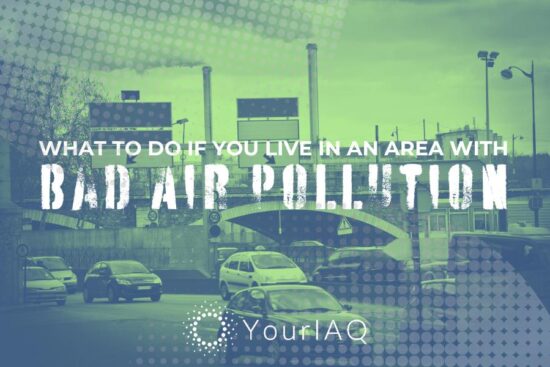
Our lungs are resilient organs, but they’re not invincible. Every breath we take impacts our lung health, and the air we breathe, especially indoors, plays a crucial role. In this article, we will explore the connection between lung health and air quality. We’ll discuss risk factors, the effects of air quality on your lungs, and practical steps to protect yourself and your loved ones. If you don’t know, read my story about why I started researching lung health and indoor air quality.
Risk Factors for Lung Disease Related to Indoor Air
Understanding the risk factors for lung disease related to indoor air quality is essential for protecting your health. Common risk factors include:
- Tobacco Smoke: Smoking and exposure to second-hand smoke significantly increase the risk of lung diseases like cancer and chronic obstructive pulmonary disease (COPD).
- Radon Gas: Radon is a radioactive gas that can seep into homes and, when inhaled, increases the risk of lung cancer.
- Indoor Air Pollutants: Poor ventilation and the presence of indoor pollutants like volatile organic compounds (VOCs), mold, and pet dander can contribute to respiratory issues.
- Asbestos: Exposure to asbestos fibers, often found in older buildings, can lead to lung cancer, asbestosis, and mesothelioma.
- Wood Smoke: Burning wood indoors can release harmful pollutants that can irritate the respiratory system.
Read more: The Threatening 13: Most Common Indoor Air Pollutants According to the EPA
How Does Air Quality Affect Lung Health?
The air we breathe indoors can directly impact our lung health. Poor indoor air quality can lead to various health problems:
- Respiratory Issues: Exposure to indoor pollutants can cause or exacerbate respiratory conditions like asthma and allergies.
- Lung Infections: Indoor air contaminated with mold spores or bacteria can lead to lung infections.
- Cancer: Long-term exposure to indoor pollutants including radon or tobacco smoke, can increase the risk of lung cancer.
- Reduced Lung Function: Poor air quality can lead to reduced lung function over time, making it harder to breathe.
Read more: Silent Threats: 17 Health Effects of Poor Indoor Air Quality
What Can I Do to Reduce My Exposure to Air Pollution?
Reducing your exposure to indoor air pollution is crucial for maintaining lung health. Here’s what you can do:
- Quit Smoking: If you smoke, seek support to quit. Avoid smoking indoors or near open windows.
- Test for Radon: Have your home tested for radon, and if necessary, install mitigation systems to reduce levels.
- Ventilation: Ensure proper ventilation in your home. Use exhaust fans and open windows to let fresh air in.
- Air Purifiers: Invest in HEPA air purifiers to remove indoor pollutants and allergens.
- Maintain Cleanliness: Regularly clean and vacuum your home to reduce dust, pet dander, and mold.
Best Ways to Improve Air Quality in My Home and Community
Improving air quality in your home and community is a collective effort. Here are some steps you can take:
- Use Environmentally-Friendly Products: Opt for eco-friendly household products and materials to reduce indoor air pollution.
- Reduce Energy Consumption: Lower energy use at home by using energy-efficient appliances and sealing gaps to prevent outdoor pollutants from entering.
- Support Clean Energy: Advocate for clean energy sources in your community to reduce outdoor air pollution.
- Plant Trees and Greenery: Green spaces can help filter the air and reduce pollutants in your neighborhood.
- Stay Informed: Monitor your indoor air quality and the Air Quality Index (AQI) and take precautions on days when air quality is poor.
Lung Health and IAQ: Frequently Asked Questions
How can I protect my children from second-hand smoke?
Avoid smoking indoors or near your children, and create a smoke-free environment in your home and car.
What is the AQI (Air Quality Index)?
The AQI is a scale that measures air quality and provides information about how clean or polluted the air is in a specific area.
How can I reduce my exposure to air pollution from traffic?
Use public transportation, carpool, or bike when possible. Avoid high-traffic areas during rush hours.
How can I reduce my exposure to air pollution from wildfires?
Stay indoors, use air purifiers, and follow local health advisories during wildfire events.
How can I reduce my exposure to air pollution from indoor sources?
Ventilate your home, use air purifiers, and avoid smoking indoors or using harmful chemicals.
—
Understanding the link between indoor air quality and lung health is vital for maintaining a healthy life. By identifying and addressing risk factors, reducing exposure to indoor air pollution, and advocating for cleaner air in your community, you can protect your lungs and the well-being of your loved ones. Prioritize clean indoor and outdoor air for a healthier future.
Further reading: Navy SEAL Breathing Techniques: Tips from the World’s Elite






